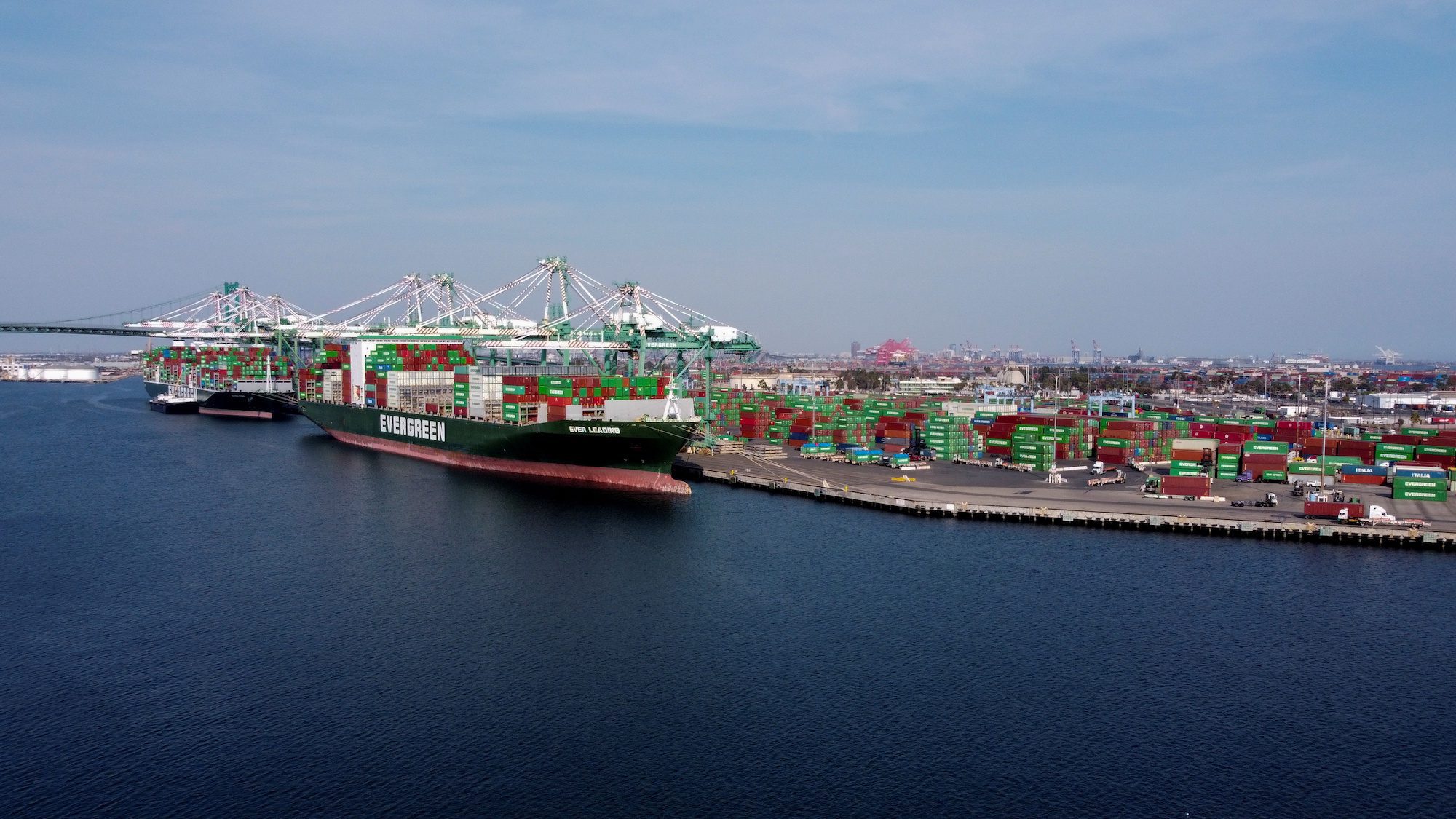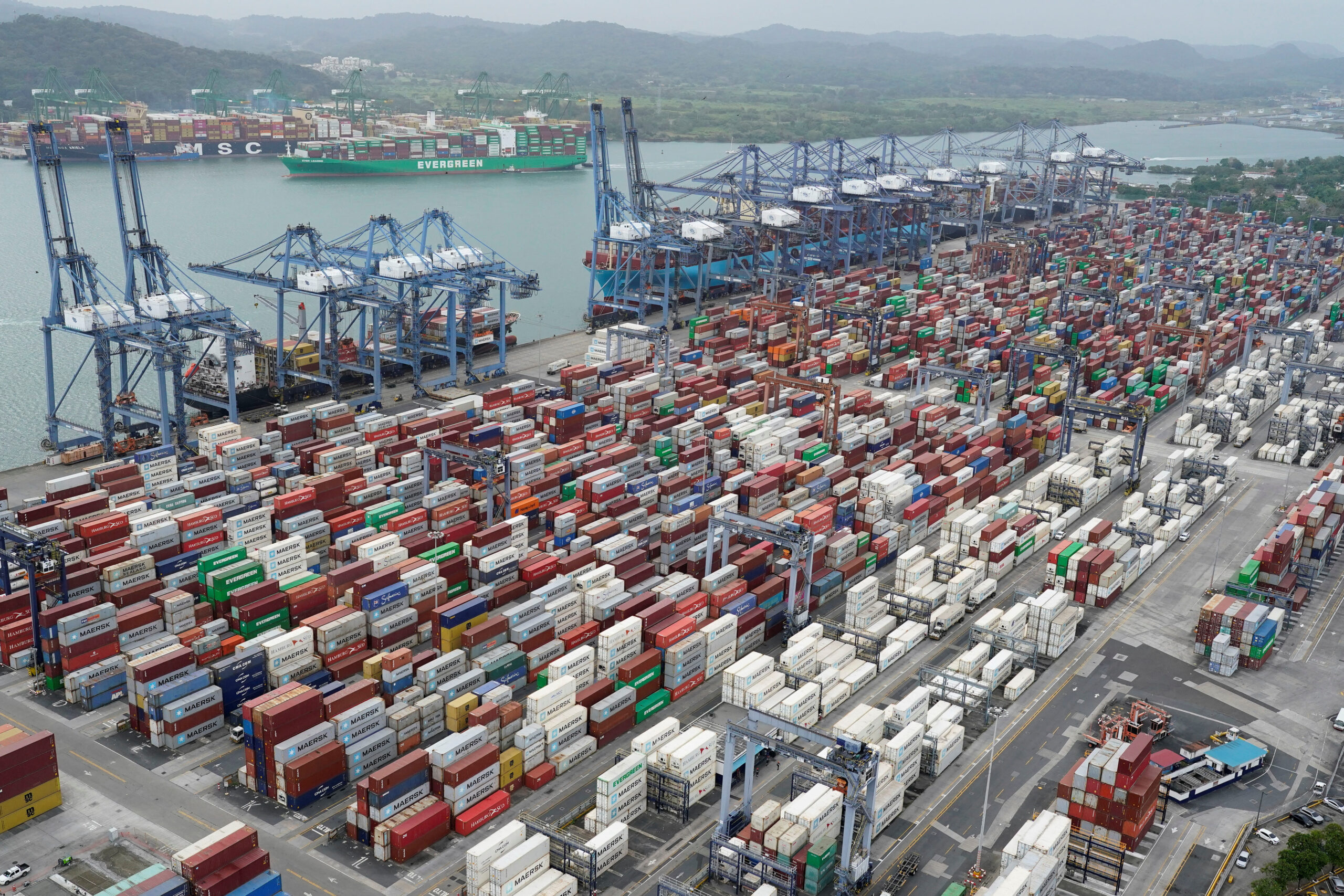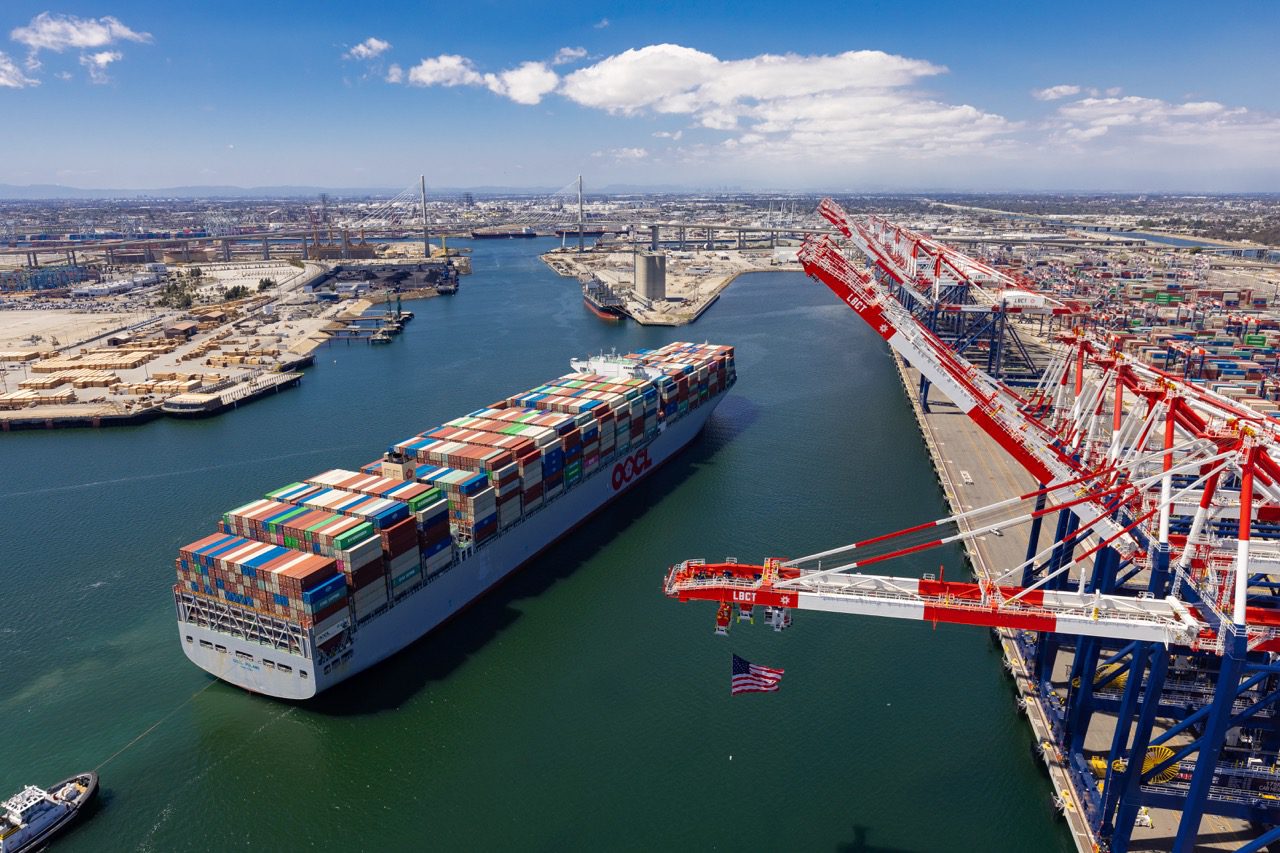By Keith Laing and Josh Wingrove (Bloomberg) —
The White House’s point person on ports is urging Congress to wrap negotiations on a $550 billion bipartisan infrastructure bill and roughly $2 trillion tax and spending measure to help address a supply-chain crunch that has delayed goods for millions of consumers.
John Porcari, port envoy to the White House’s Supply Chain Disruptions Task Force, said the $550 billion infrastructure bill that is being considered by Congress would help ease backlogs.
“The bipartisan infrastructure bill for the first time ever provided significant funding for the land side of ports,” he said Thursday in an interview. Money would be doled out to fund railway and track grading improvements and highway enhancements to accommodate more trucks, he said.
The separate, so-called human infrastructure bill that is being debated would also help “in making it easier for employers in the supply chain to stay in that chain.”
The port of Los Angeles moved last week to 24-hour operations at the urging of the Biden administration, joining the nearby Port of Long Beach, which began around the clock in September. In a White House meeting last week, executives from Walmart Inc., FedEx Corp. and other companies central to the supply chain pledged to expand operations to clear a nationwide cargo logjam.
Los Angeles Port
Porcari said White House got involved in trying to broker an agreement to keep the ports open longer because the supply chain involves disparate private companies that are often regulated by different federal agencies.
“We are making progress,” he said. “This is a series of private sector businesses that often have not communicated well with other each other in the past and so there’s very little information sharing, there’s very little in the way of real time data and the entire goods movement chain is only as good as the weakest link.”
“There were strains in the supply chain before the pandemic, but the pandemic has really laid bare the problems,” he said.
Porcari said the White House thought it was important to start its outreach with the Los Angeles and Long Beach ports because they process 40% of the nation’s cargo container traffic.
“Objectively, they have the congestion,” he said.
Porcari said the White House is pivotal in bringing together the disparate federal agencies that oversee portions of the supply chain in pursuit of a “whole of government” approach to solving the shipping backlog.
He said the White House is considering trying to broker similar agreements with other ports if necessary.
“We’re talking to ports all over the country,” he said. “We’re encouraging them to be innovative.”
Porcari said the White House has heard positive feedback from the companies it has brought to together to discuss the supply chain issues thus far.
“To a person, the CEOs we’ve been talking to acknowledge this is long overdue but they didn’t know where to start and they didn’t want to be the one to stick their necks out on it,” he said.
© 2021 Bloomberg L.P.
Sign up for our newsletter

 Join The Club
Join The Club











